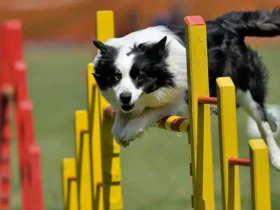Introduction
As cats age, their needs change, and providing proper care becomes increasingly important to ensure their comfort and well-being. Senior cats, typically those over the age of 7, require special attention to maintain their quality of life. This guide will walk you through the key aspects of senior cat care, including health monitoring, dietary needs, and environmental adjustments.
1. Regular Veterinary Check-Ups
Routine Examinations: Regular veterinary check-ups are crucial for senior cats. Your veterinarian should perform comprehensive exams at least twice a year. These exams often include blood tests, urinalysis, and dental checks to detect common age-related issues like kidney disease, diabetes, and dental problems early.
Vaccinations and Parasite Control: Ensure your senior cat is up-to-date on vaccinations and flea, tick, and worm prevention. Older cats can be more susceptible to infections and infestations, so maintaining their preventive care is essential.
2. Dietary Adjustments
Nutritional Needs: Senior cats often require a diet tailored to their age-related needs. Look for cat food formulated for senior cats, which typically has adjusted protein levels, lower phosphorus, and added vitamins and minerals to support kidney function and joint health.
Managing Weight: Weight management is critical. Obesity can exacerbate arthritis and diabetes, while being underweight can indicate health problems or insufficient nutrition. Monitor your cat’s weight regularly and consult your vet about dietary adjustments if needed.
Hydration: Older cats may not drink enough water, which can lead to dehydration and urinary tract issues. Ensure your cat has access to fresh water at all times and consider offering wet food or water fountains to encourage drinking.
3. Dental Health
Regular Dental Care: Dental health is crucial, as dental disease can lead to pain and other health issues. Brush your cat’s teeth regularly with a feline toothpaste and consider dental treats or toys to help reduce plaque buildup.
Professional Cleanings: Schedule professional dental cleanings with your vet as needed. Dental issues in senior cats are common and can affect their overall health.
4. Managing Common Health Issues
Arthritis and Mobility Issues: Arthritis is common in older cats and can cause pain and difficulty moving. Look for signs such as stiffness, reluctance to jump, or changes in grooming behavior. Provide soft bedding and consider joint supplements or medications prescribed by your vet.
Kidney Disease: Chronic kidney disease (CKD) is prevalent in senior cats. Symptoms include increased thirst, frequent urination, and weight loss. Special diets and medications can help manage CKD, so regular vet check-ups are important for early detection and treatment.
Hyperthyroidism: Hyperthyroidism is another common condition in senior cats, characterized by weight loss, increased appetite, and restlessness. Treatment options include medication, diet, and sometimes surgery.
5. Environmental Enrichment
Comfortable Sleeping Areas: Provide multiple soft, warm sleeping areas in various locations. Senior cats may have difficulty climbing to high places, so ensure they have easy access to their favorite resting spots.
Low-Stress Environment: Create a calm and stress-free environment. Older cats may be more sensitive to changes, so try to maintain a consistent routine and avoid sudden disruptions.
Interactive Toys: Keep your senior cat mentally stimulated with gentle toys and interactive games. Though they may not be as active as they once were, engaging their minds can help reduce boredom and stress.
6. Grooming and Hygiene
Regular Grooming: Older cats may groom less effectively due to arthritis or dental pain. Brush your cat regularly to reduce shedding and hairballs, and check for mats or tangles.
Nail Trimming: Keep your cat’s nails trimmed to prevent overgrowth and potential injuries. Regular trimming also helps maintain their mobility and comfort.
7. Monitoring Behavioral Changes
Behavioral Signs: Changes in behavior can indicate health issues. Be observant of changes in eating habits, litter box usage, or interactions with people and other pets. Report any significant changes to your veterinarian.
Mental Health: Cognitive decline can affect senior cats, leading to confusion or disorientation. Enrich their environment with familiar objects and routines, and provide plenty of reassurance and affection.
Conclusion
Caring for a senior cat requires a bit more effort and attention, but the reward of seeing your feline friend comfortable and happy is worth it. By staying vigilant about their health, adjusting their diet, and ensuring their environment is supportive, you can help your senior cat enjoy their golden years. Regular vet visits, proper nutrition, and a loving home will go a long way in maintaining their quality of life.











Leave a Reply